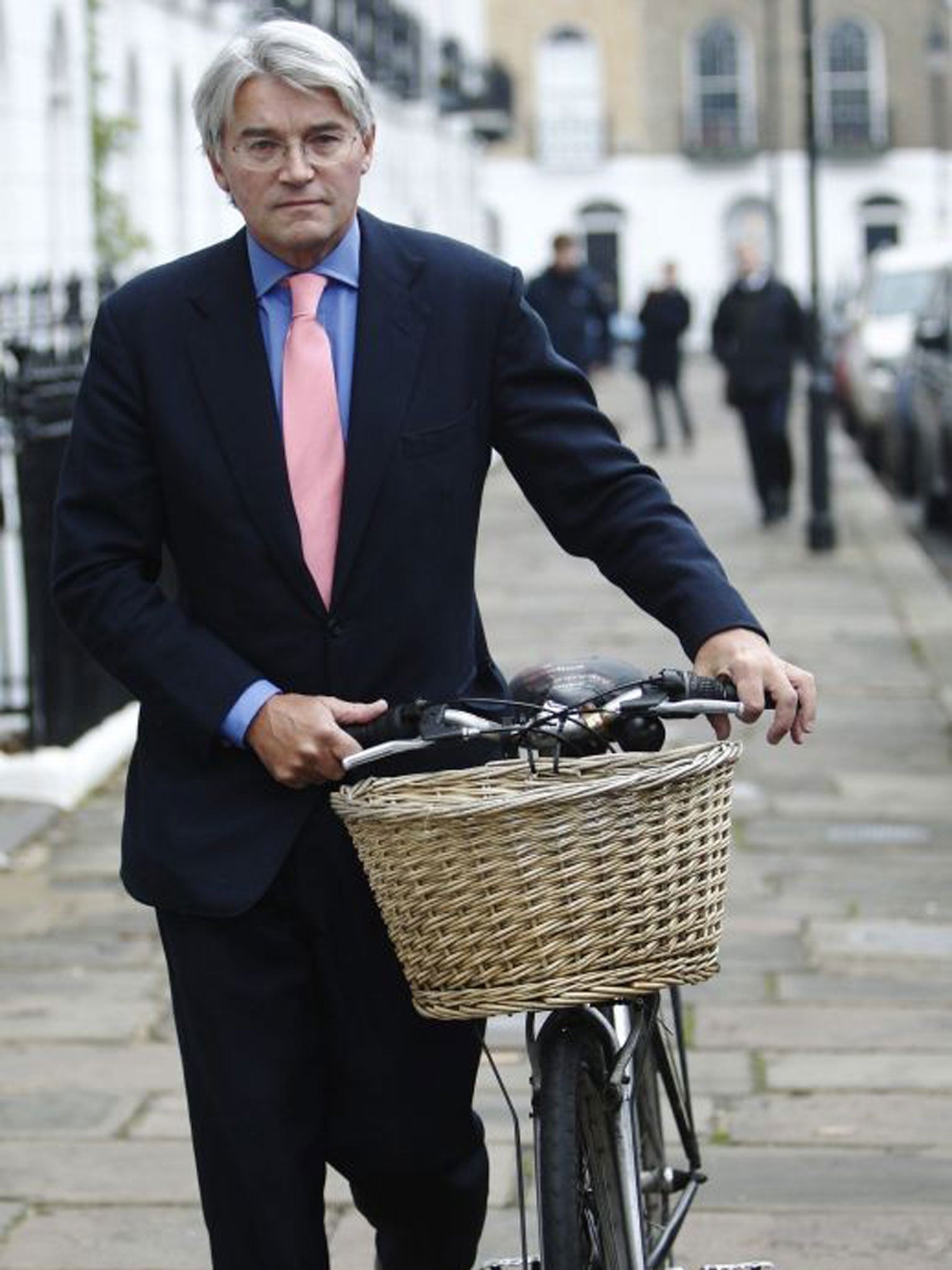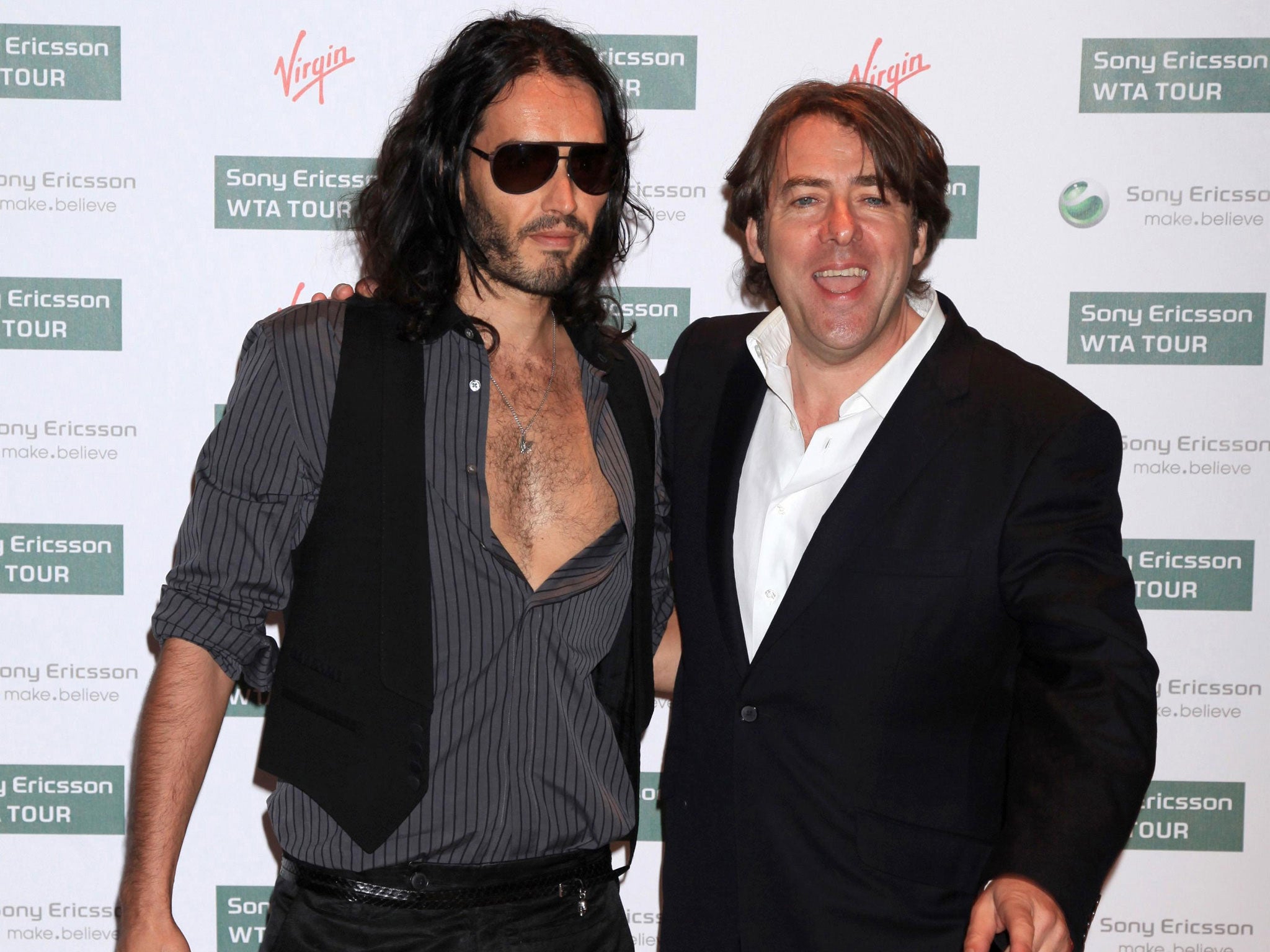The age of outrage: From Russell Brand's Sachsgate to Plebgate, taking offence has become ubiquitous in modern life
The taking of offence has become ubiquitous in modern life but, argues Richard King, it is democracy that suffers when sensitivity is allowed to gain the upper hand

“What's worse,” asked the comedian, “leaving a swear word on somebody's answerphone or tacitly supporting Adolf Hitler when he took charge of the Third Reich?” Russell Brand was speaking on his radio show – a week after he and Jonathan Ross had left a series of lewd messages on the answering machine of actor Andrew Sachs, who famously played Manuel in Fawlty Towers.
Before the show, The Mail on Sunday had announced that the following day it planned to run an article deploring not only the messages but also BBC Radio 2's decision to let the segment go to air. So, in alluding to the Mail's rather patchy history in respect of fascism in the 1930s, Brand was getting his retaliation in first. And while some may accuse him of comparing apples with oranges, few would question his sense of proportion. Surely, we can all agree that Nazis trump prank callers in the evil stakes.

Well, you'd think so. But after reading some of the commentary around the publication of Sachs' autobiography, I Know Nothing, I'm beginning to wonder. Here, for example, is Sachs himself in a recent interview with The Guardian, responding to a question (the interviewer's first) on the "scandal" now known as "Sachsgate":
"It was rather disgusting and terrible, awful. We had many letters about how disgraceful it was. You probably heard some of what they said. They still go on about it now. They did apologise: sent us two letters with lots of flowers. Very brave of them! But it was a bad time, it's the worst thing that ever happened to our family, worse than the Nazis. Dear, oh dear."
To regard this as an extraordinary thing to say is in no way to accuse Sachs of dishonesty. Sachs's feelings are what they are, after all, and if he says that Sachsgate hurt him more than the Nazis, I'm inclined to take him at his word, even while being taken aback. But it is one thing to experience such remarkable feelings, quite another to present them as unremarkable. In his review of I Know Nothing for The Spectator, Roger Lewis attempts to do just that:
"The notorious phone calls from Jonathan Ross and Russell Brand, broadcast on a radio show in 2008, appear all the more shocking, therefore, now that we know about Sachs's background and non-confrontational personality. It must have been like being picked on and bullied by Nazi thugs all over again… This was a family that had escaped Auschwitz."
Nor is this cloying, scandalised tone peculiar to Mr Lewis. Far from it! The following comments appear at the end of an article published in the Daily Mail, an edited extract from I Know Nothing that doesn't mention Ross and Brand but recounts Sachs's early years in Germany:
"Should be compulsory reading for Ross and Brand"... "I wonder how Mr Brand and Mr Ross would have survived the war years"... "What have Jonathan Ross or Russell Brand ever been through?"… "When one reads this – even though an excerpt, it makes one reflect upon how ignorant animals like Russell Brand an [sic] Jonathan Ross should be allowed to denigrate and insult as they did, Andrew Sachs and make fun of his family. BBC have a lot to pay for as well."
(On that last point, it seems only fair to recall that the BBC was fined £150,000 by Ofcom; that The Russell Brand Radio Show was immediately canned; and that the controller of Radio 2, Lesley Douglas, resigned as a result of the controversy.)
So, what's worse: leaving a swear word on an answerphone or tacitly supporting Adolf Hitler? Is anyone else feeling… disorientated?
Clearly, the Sachsgate scandal is absurd – absurd because it is a scandal, and more absurd because it became a scandal at a time when the world economy was in meltdown and the US less than a month away from electing its first-ever black President. But this orgy of recrimination, while unusual in point of its intensity, was hardly an uncommon occurrence.
For who will deny that the taking of offence is ubiquitous in modern life, and in popular culture in particular? It is in the nature of mass entertainment always to divide the viewing public; no society, after all, is monolithic, and what one "demographic" finds fresh and irreverent, another will regard as pornographic and heretical. But in the early years of the 21st century, offence has itself become a form of entertainment – a source of morbid, masochistic pleasure, bittersweet as a Campari cocktail.
Or perhaps it is better to think of these scandals as a cross between entertainment and politics. Certainly, many politicians and "community leaders" regard them as such. Our representatives know what plays, and are only too happy to play on our feelings, to chip in with a solemn condemnation or a bit of ostentatious head-shaking when doing so will bring a dash of populist pizzazz to the grey, Sisyphean business of politics. Thus Gordon Brown was moved to describe the prank calls made by Brand and Ross as "clearly inappropriate and unacceptable", while the Conservative Party's Theresa May called for a Commons debate on the issue. Such "positioning" carries its own warning, or should do: in our eagerness to take offence, we make ourselves a prey to the demagogue.
To be sure, the taking of offence is essential if you want to get on in contemporary politics. In the US, the ridiculous Tea Party movement and its sympathisers on the right fill the bookshops with self-pitying tomes, and imply, and occasionally even assert, that white middle-class Americans are now a victimised community – that they're being moved, so to speak, to the back of the bus. (Now even the top political dogs are apt to whine like abandoned puppies.)
The "plebgate" scandal may have grown to encompass important issues of police corruption, but it began as an argument over whether or not a Tory MP had called a copper a "pleb" – hardly the most pressing issue in the world, but one to which the Great British press devoted many thousands of column inches.
Or witness the confected outrage over Harriet Harman's association with a group that had an association with a group that agitates for the legalisation of paedophilia. Never mind that whatever happened took place more than 30 years ago, or that the story has been around for years, or that the implication (or insinuation) that Harman is an apologist for paedophilia is so tenuous as to be absurd. Such objections are a waste of breath when sensitivities are at stake. Outrage does your arguing for you.
This is one of the most worrying aspects of the culture of offence-taking and offence-mongering. For what politicians and commentators who push such nonsense seem to desire is a public that is more incensed than it is interested. Consequently, it is democracy that suffers when sensitivity gains the upper hand. Important questions are put to one side in the interests of "respect" and "appropriateness". Sometimes, whole issues are declared off limits.
When James Watson, the biologist, made some off-the-cuff remarks about race and intelligence in the middle of a book tour, he caused such a ruckus that the tour was discontinued. But we cannot wish such issues away, and the more they are ignored the more toxic they become. Though not known for its intellectual rigour, the far right has its philosophical wing, and we had better get our arguments straight if the racist parties of Europe and elsewhere are not to continue their current resurgence. With whom would you rather have the discussion about the link between race and intelligence? The co-discoverer of DNA, or the gentleman with the pit bull and the swastika tattoo?

Clearly, demagoguery is no recent phenomenon: political and religious leaders have always attempted to harness self-pity and resentment in the pursuit of power. But the modern obsession with sensitivity makes something that was once implicit explicit, and in so doing invites us – quite shamelessly – to put our intellects on hold and our feelings on speaker. Having internalised the slogan of the counterculture, "the personal is political", we now act as if the political is purely personal. Identifying with causes rather than committing ourselves to them, and mistaking our feelings for political insights, we demand not only the right to take offence but also the right not to be offended. Contemporary politics, it sometimes seems, has fused at some level with the priorities of therapy; its motto is "I feel therefore I am".
This culture of ostentatious offendedness finds its most conspicuous expression on the internet and in social media. The scale and scope of the worldwide web means that one cannot control one's audience or, indeed, predict its reaction. Ordinarily, we might avoid subjects that are likely to offend our interlocutors, but the internet makes this difficult, since our interlocutors are (potentially) in the billions. And while only a fool or a megalomaniac would imagine himself to be addressing those billions, that doesn't mean that some among them won't be offended by what we have to say. The problem is compounded by anonymity, the effect of which is to rob discussions of all those little tics and gestures that keep the majority of in-the-flesh disputes (and even telephone conversations) from descending into abuse or violence. A badly phrased blog post or comment or tweet is easily taken for a nasty one, in the same way that an incompetent driver is easily taken for an obnoxious git.
It's also the case that the new technology, for all that it has the potential to bring the First Amendment to the whole of humanity, can sometimes engender an atmosphere that works against, if not the letter, then at least the spirit of free speech. The social networking site Twitter connects people from all over the world, but since its creation in 2006 it has also served as an echo chamber for those who have an axe to grind. Taking offence at some newspaper article, or off-colour comment in an interview, or the musings of a fellow tweeter, the subscriber to this "microblog" is able to raise an instant mob. Thus, a technology that seems, on the face of it, to increase the scope for freedom of speech, is frequently used to close it down. "Like a modern-day version of those old medieval mobs that waved torches as they chased 'witches'," writes the journalist Brendan O'Neill, "the Twittermob will demonise and try to squish anyone it deems to be a deviant … The 140-character tweet is the 21st century equivalent of the rotten tomato."
And so offensiveness begets offendedness, which in turn begets more offensiveness; like the perpetually indignant talk radio host spewing bile and calumny over the airwaves, we adopt the role of both victim and victimiser. And this, surely, is the key point; for it is not as if the culture of offence is in any sense relatable to some sharp up-tick in civility. On the contrary, the current political scene is one in which incivility prevails. Rabble-rousers are ten a penny, and the rabble as willing as ever to be roused. The paradox is as plain as day and makes the case all by itself: to proscribe offence is not to build a more civil society but an angrier one.
There is nothing wrong with taking offence. There's a lot to be offended about. (If you're not offended, and offended regularly, you should ask the nurse to check your pulse.) But to regard offence as the end of the debate, rather than as the beginning of it, is to invite more incivility, not less. A society in which complaint gives you power, and where tolerance is confused with acceptance, is one in which only demagogues prosper. Demagogues and certain tabloid newspapers.
On Offence: The Politics of Indignation, by Richard King (Scribe, rrp£12.99) is published today. To order it for £11.69, with free P&P, call 08430 600030 or visit independentbooksdirect.co.uk
Join our commenting forum
Join thought-provoking conversations, follow other Independent readers and see their replies
Comments